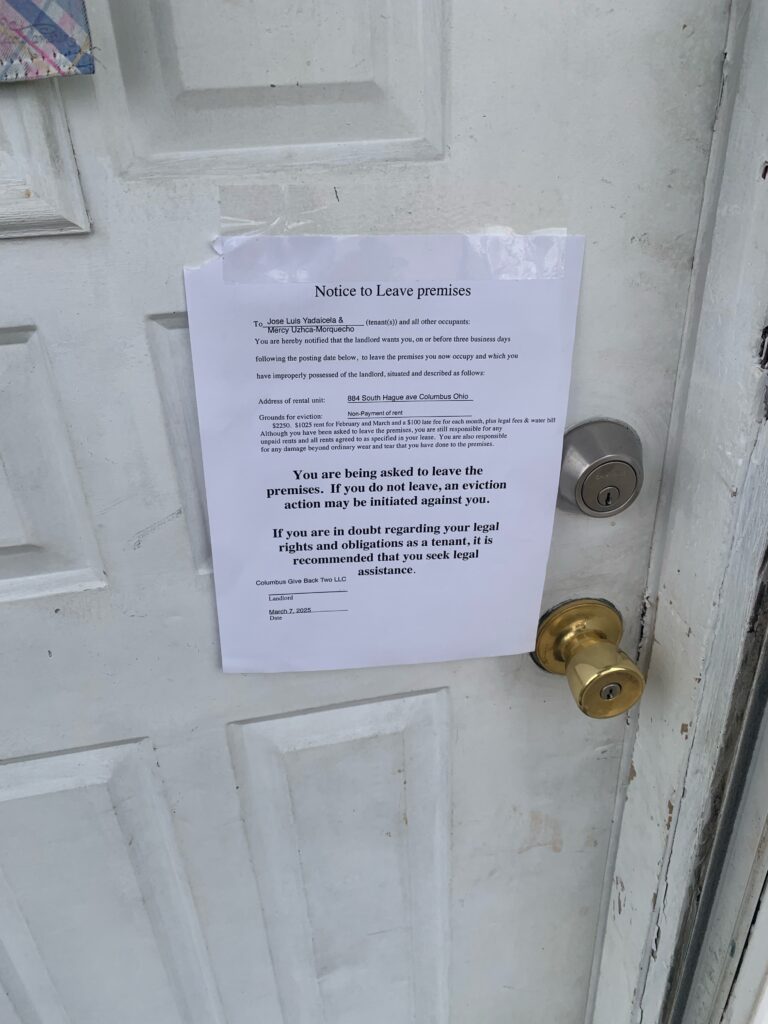If you are a tenant and you just received a 3 day eviction notice in Ohio, don’t panic. Here’s what you need to know.

The eviction notice will indicate that there was a breach of lease – usually, nonpayment of rent. It will also indicate that you have three business days after the posting of the notice to vacate the premises (some jurisdictions in Ohio give three calendar days instead of business days).
If you do not vacate within this time period, the landlord, upon expiration of the notice, has the ability to bring an eviction action against you in court. It is up to the landlord on when the eviction action gets filed, but, once it gets filed, a court hearing can be scheduled in about two weeks from the date of filing.
You will receive notice of the court hearing and a copy of the eviction complaint through another posting on your door and through regular mail. You have the right to attend the eviction hearing and present your defenses to the eviction. You can also seek legal representation for the hearing. If you choose not to attend the hearing, an eviction may be awarded against you. If you move out, you will still want to attend the hearing and tell the court that you have moved completely out and returned the keys. The court should dismiss the eviction against you if this is the case.
At court, you may be able to obtain legal aid, financial aid, and/or mediation help from the agencies that may be present at the courthouse (usually outside the eviction courtroom). In some counties, you may need to seek out theses agencies before court and at their locations.
You can contact the landlord or the landlord’s attorney at any time and try to resolve the eviction action by agreeing to a payment plan to catch up on rent, agreeing to a move out date, or reaching some other agreement with the landlord. The landlord does not have to accept payments and may choose to proceed with the eviction action.
If the matter goes to court and an eviction is granted, you will have about a week to move out. If you do not move out, the landlord can conduct a set out under supervision of the court bailiff or the sheriff depending upon your county’s practice.